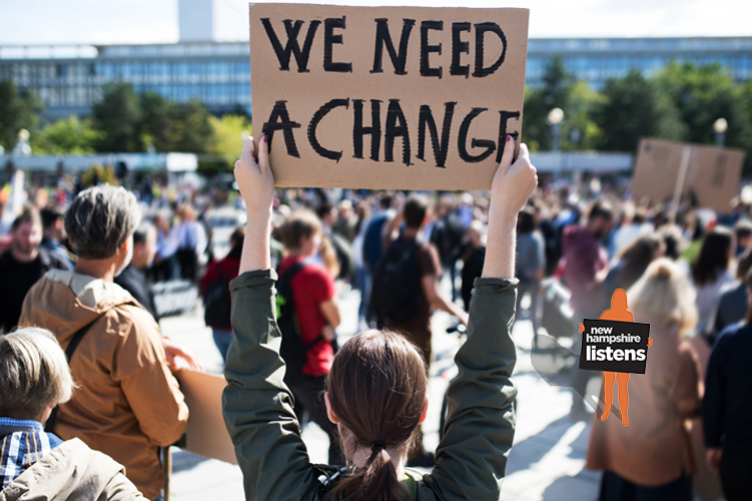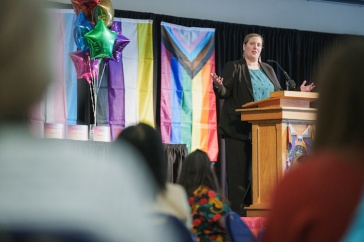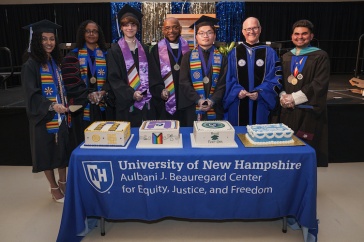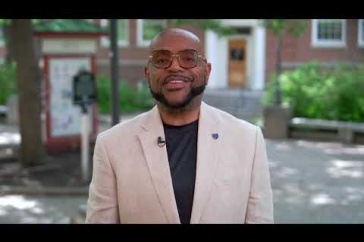
When demanding change, those calling for action and those asking for dialogue can sometimes seem at odds. Both parties likely know that true conflict resolution will eventually require respectful conversation, however the straightest and fastest path to that end is not always agreed upon. The truth is that protest, civil disobedience, and similar actions are often necessary to demonstrate that societal problems cannot be ignored. Then, as a cause gains traction and builds momentum, dialogue becomes necessary for true change.
On Wednesday, Feb. 2, NH Listens – an equity and engagement initiative at the Carsey School of Public Policy at UNH – will host an online panel discussion on when to demand action and when to seek dialogue for a cause. During the conversation, you’ll have the opportunity to explore your own views on deliberative democracy and dialogue, and you’ll hear from panelists who have studied and been involved in such efforts on college campuses and learn about the principles they used to guide their decision making.
"Real change comes from all directions. While a pillar of NH Listens’ work is dialogue, we are often bridging the efforts of people inside and outside of a system or organization."
“Real change comes from all directions,” described Michele Holt-Shannon, Director and co-founder of NH Listens. “While a pillar of NH Listens’ work is dialogue, we are often bridging the efforts of people inside and outside of a system or organization.”
The panel discussion will be moderated by Carsey School Director Michael Ettlinger. Panelists will include Nancy Thomas, Director of Tufts University’s Institute for Democracy & Higher Education; Dr. Jamaal Downey, lead instructor of the Treat Student Fellowship program at UNH; and Michele Holt-Shannon.
"For those who are disadvantaged in the power structure, that pressure can often only come in the form of protest, civil disobedience and other means for attracting attention to their objectives."
“In an ideal world, solving problems, building sustainable communities, nations and a sustainable planet, would be as simple as getting people of good will together to engage in reasoned dialogue," said Michael Ettlinger. "However, that model cannot be relied on to achieve equitable results, particularly when some are systemically disadvantaged in power structures—pressure must be applied to create an environment where parties will come together and make progress."
"For those who are disadvantaged in the power structure, that pressure can often only come in the form of protest, civil disobedience and other means for attracting attention to their objectives," he added. "The choices of 'if', 'when' and 'how' to engage in those activities are never easy and are almost always consequential.”
You can learn more about this online event on the Carsey School website. Please register to attend.
















































